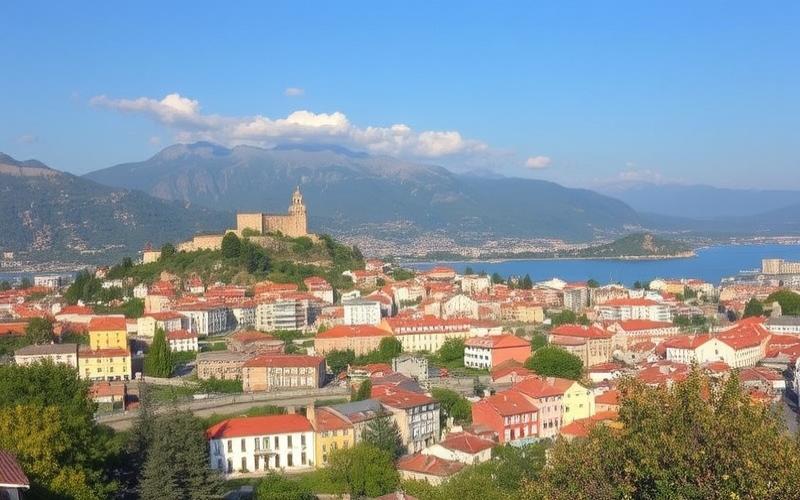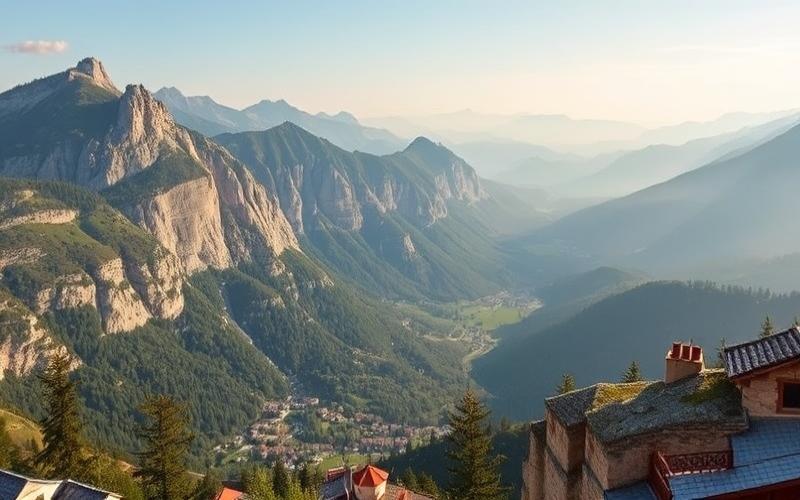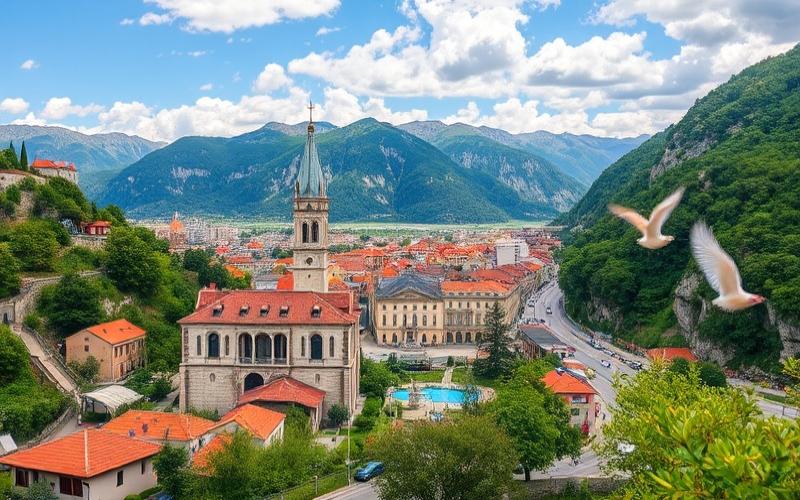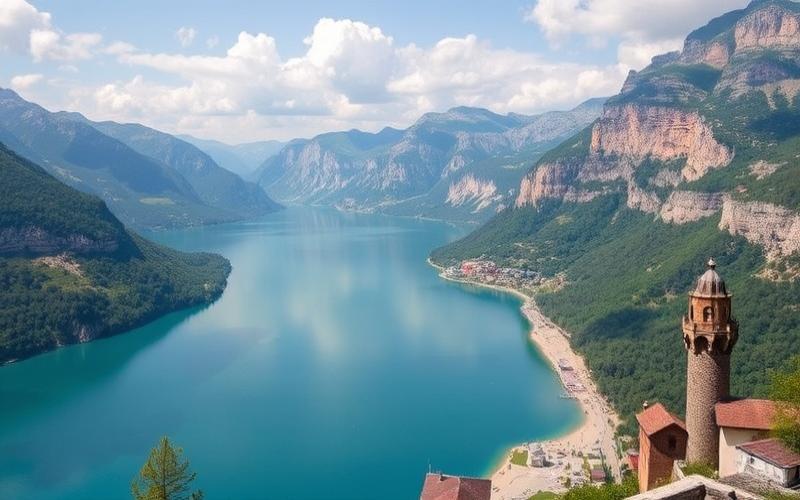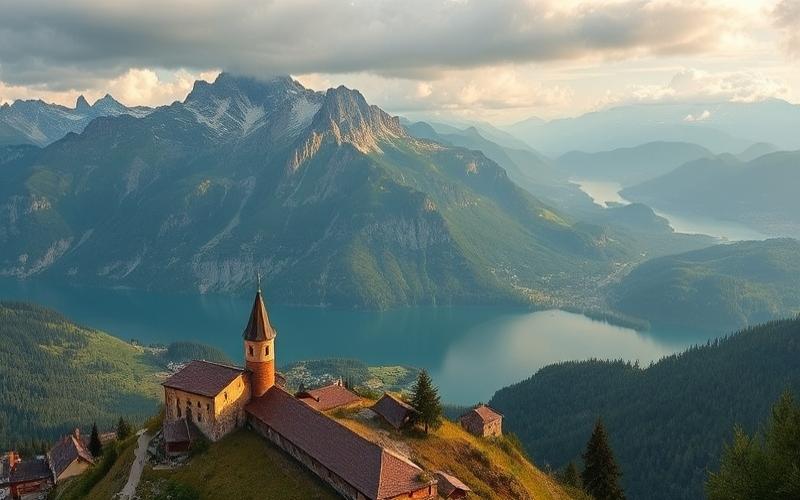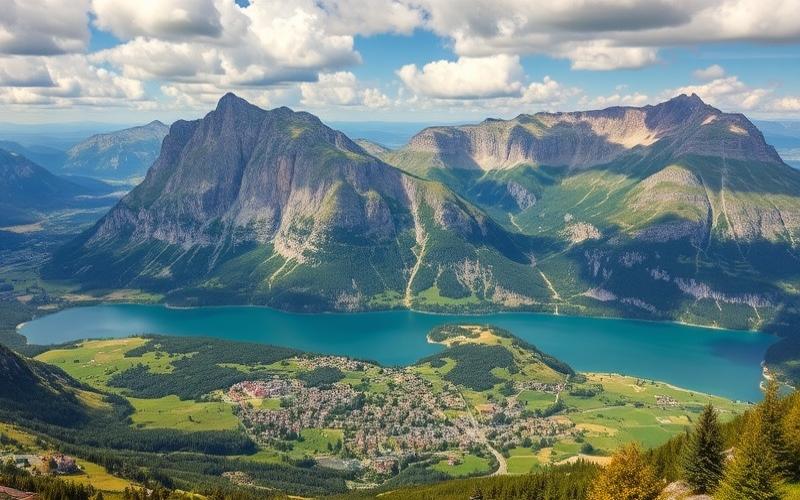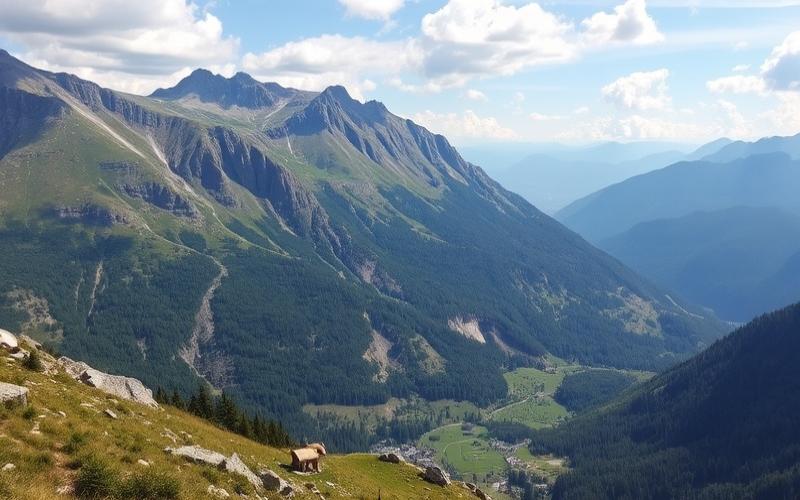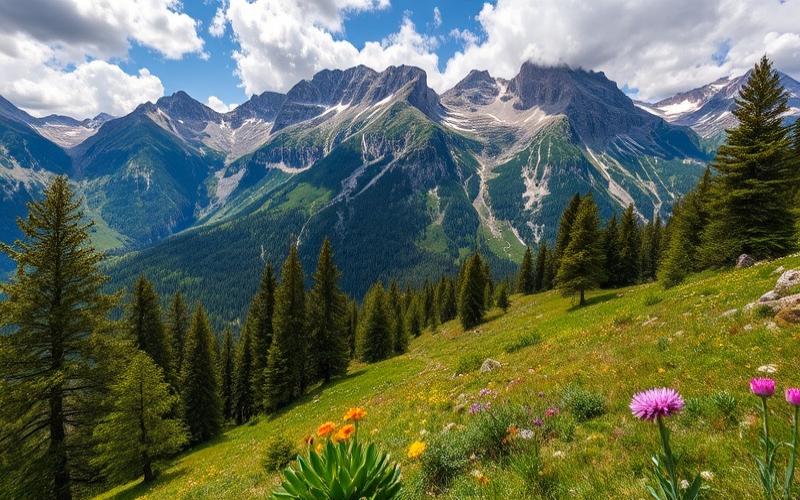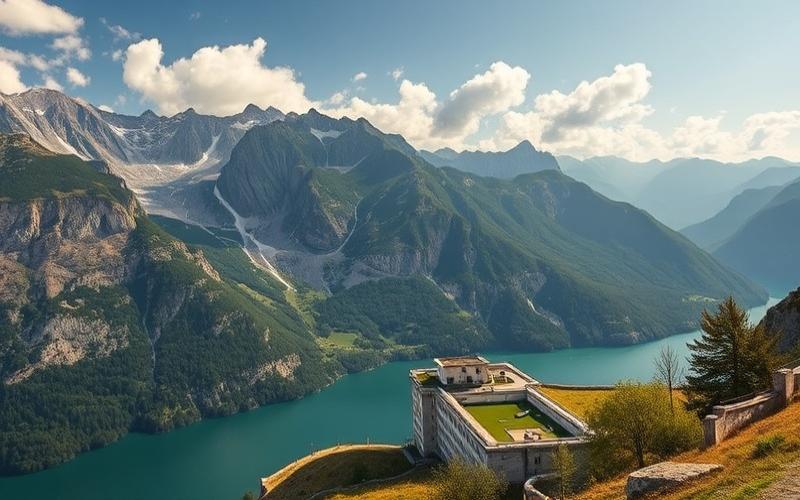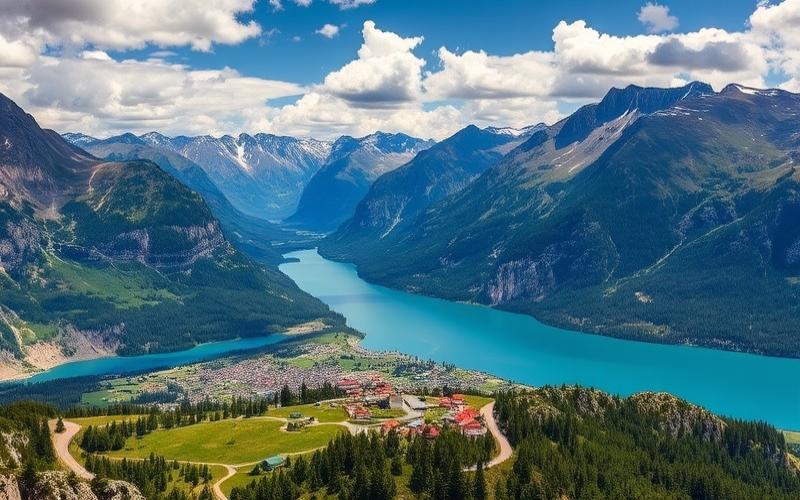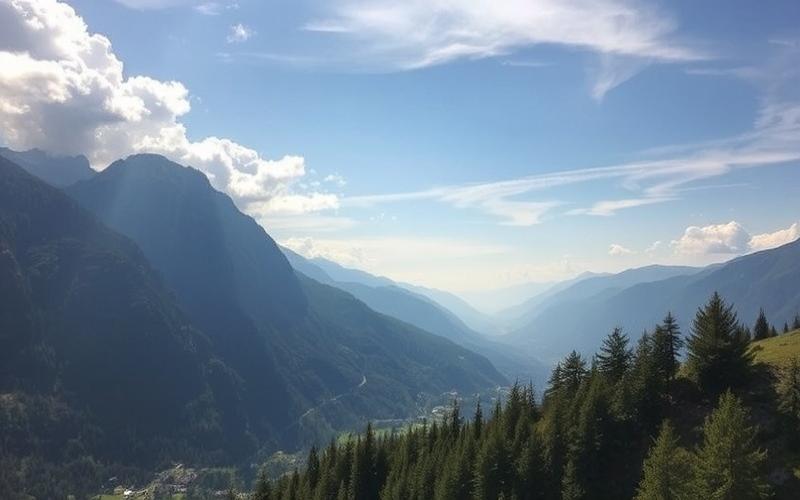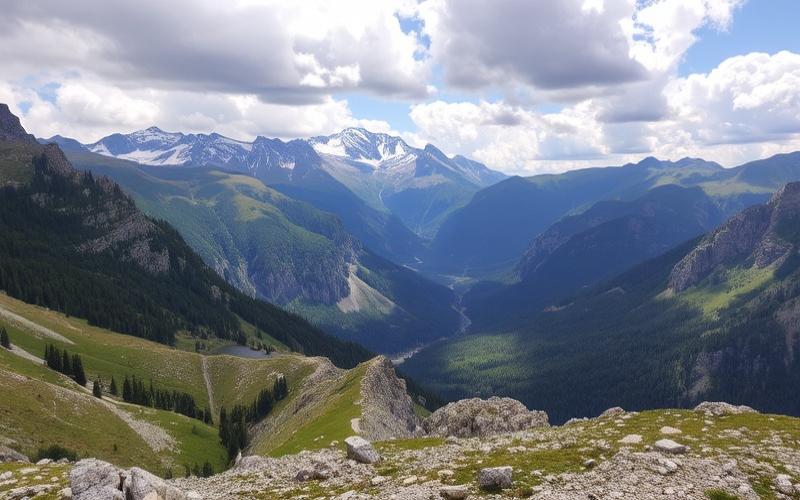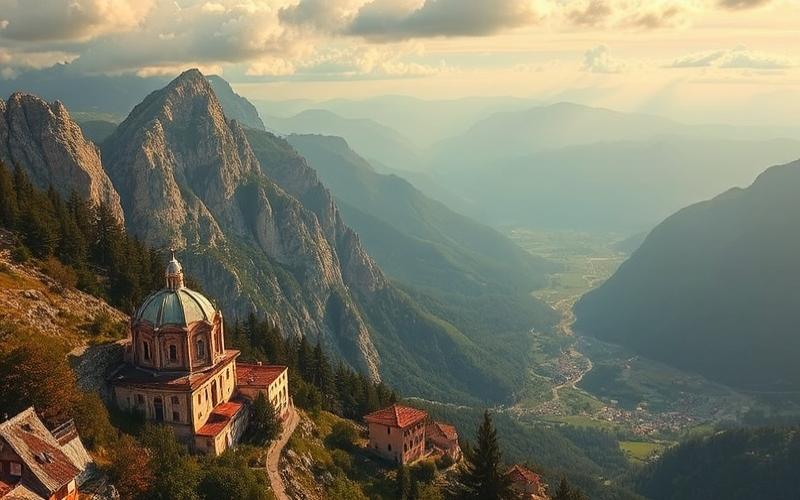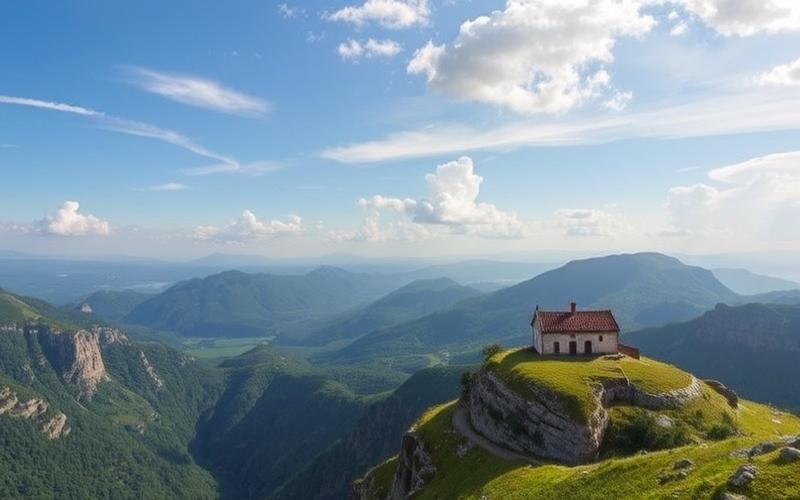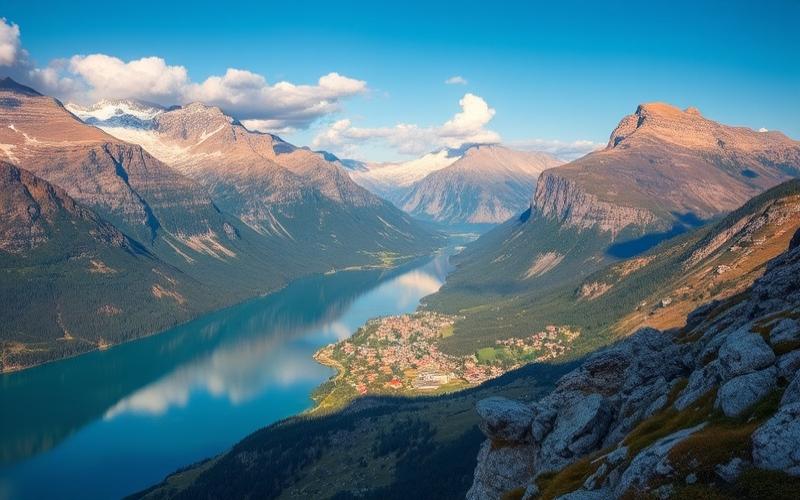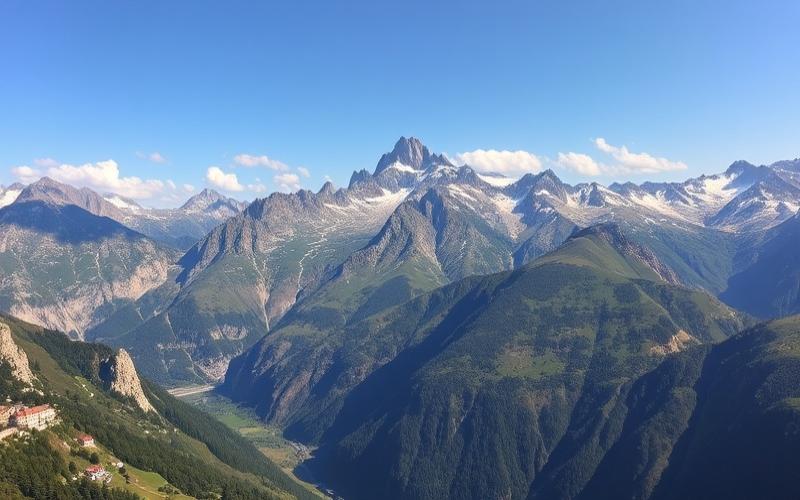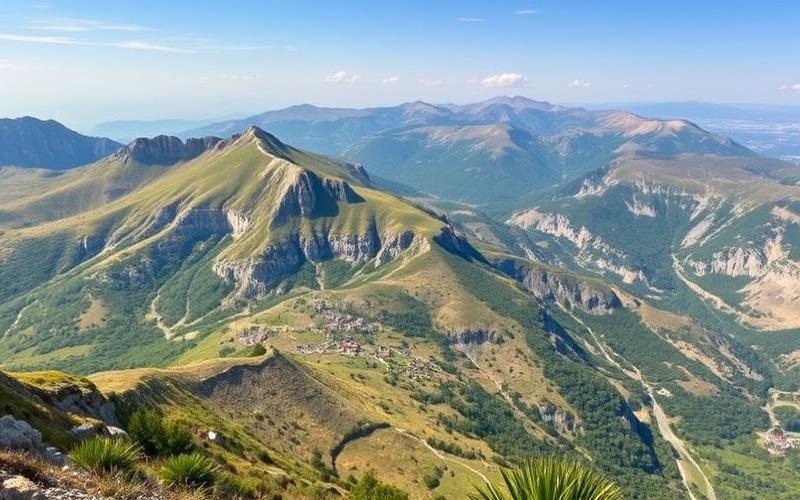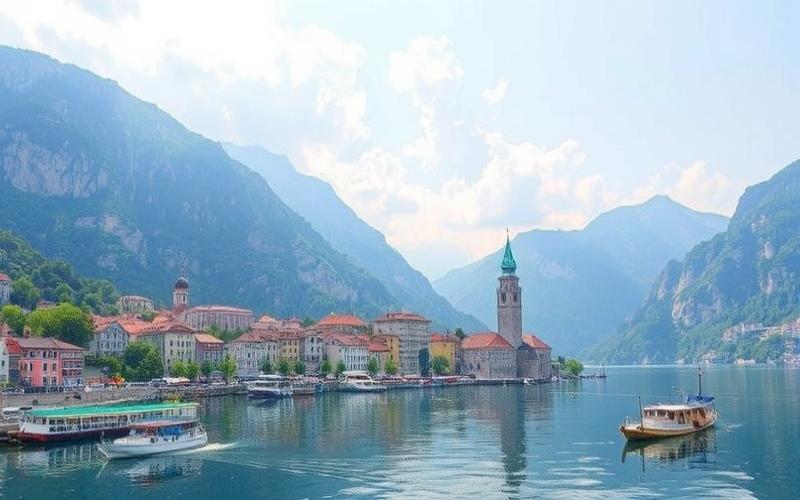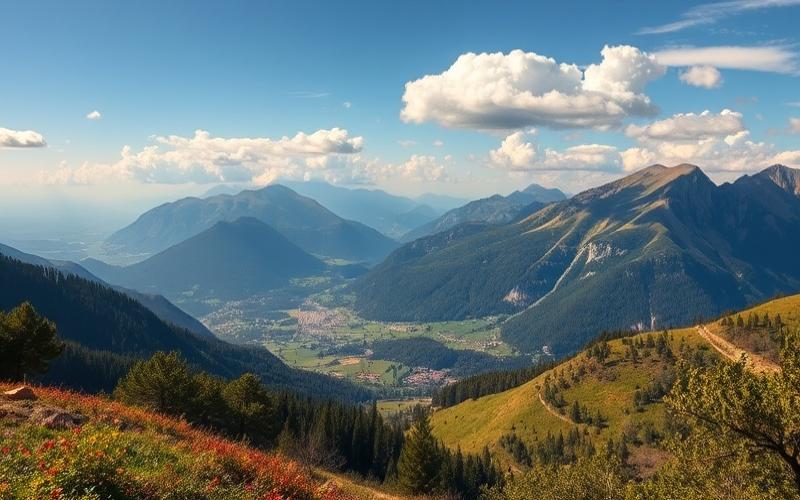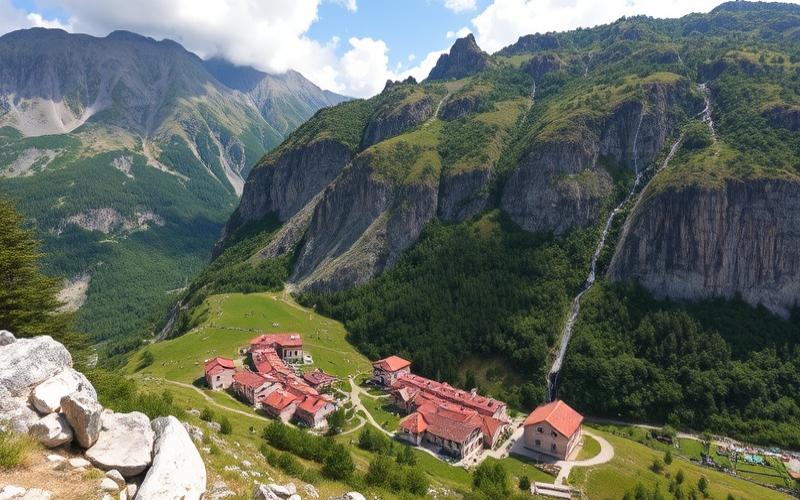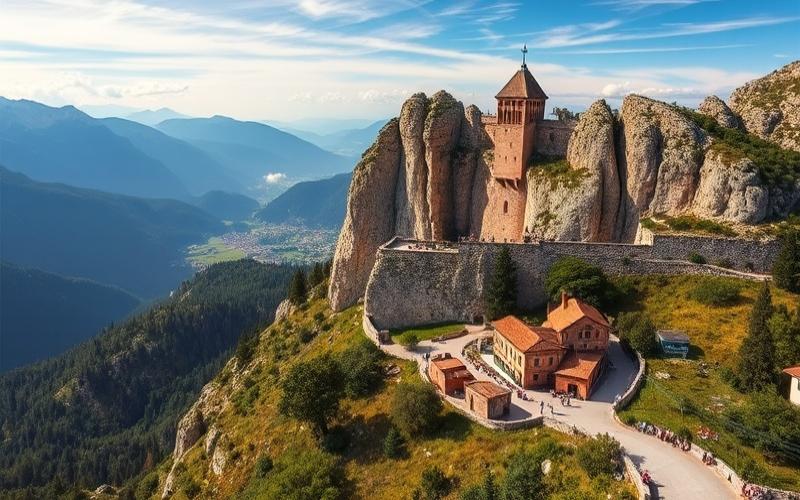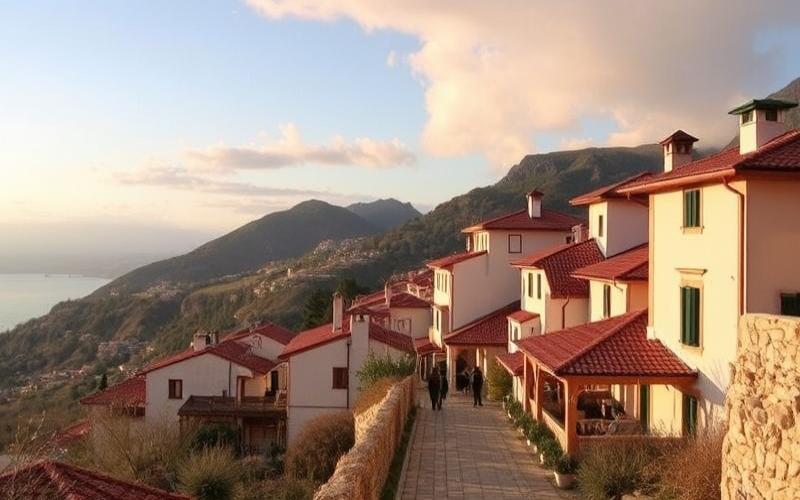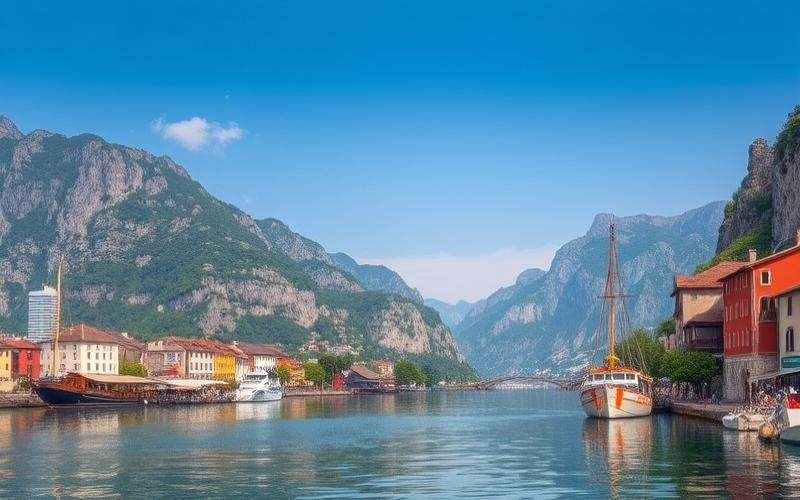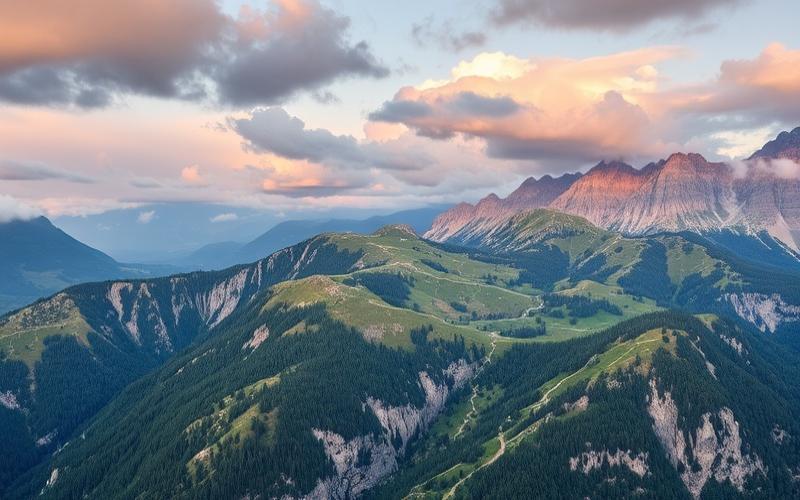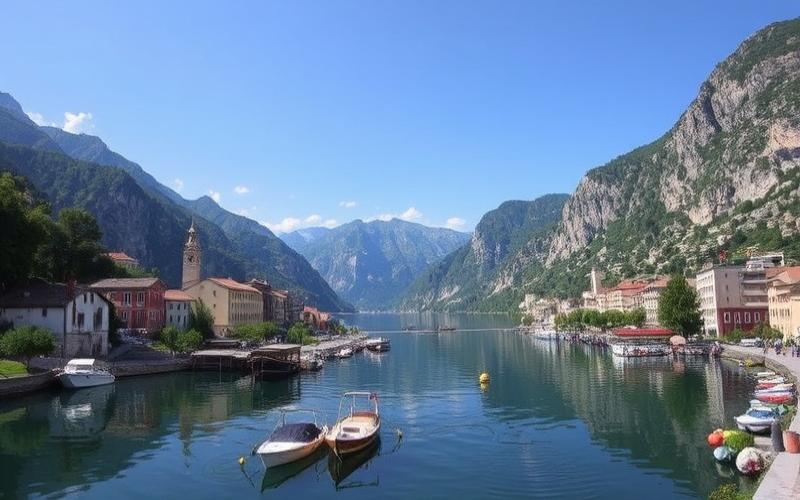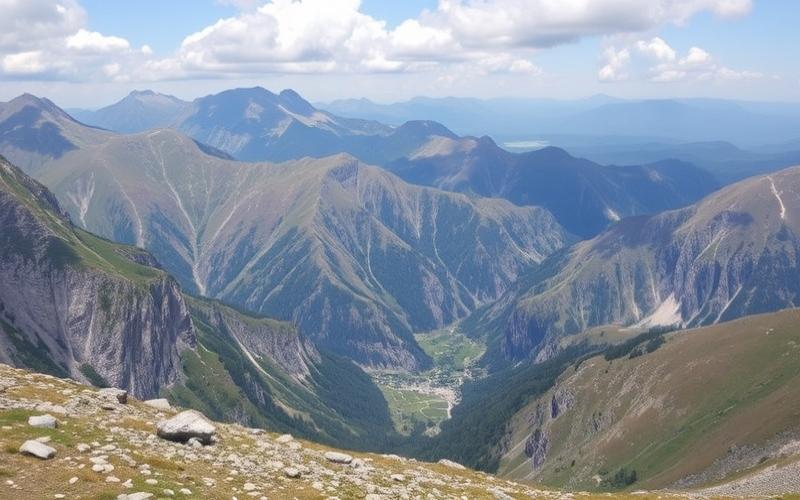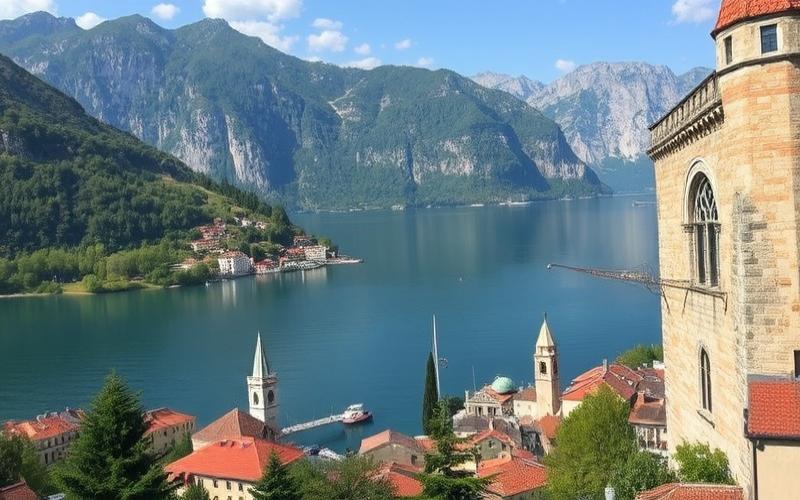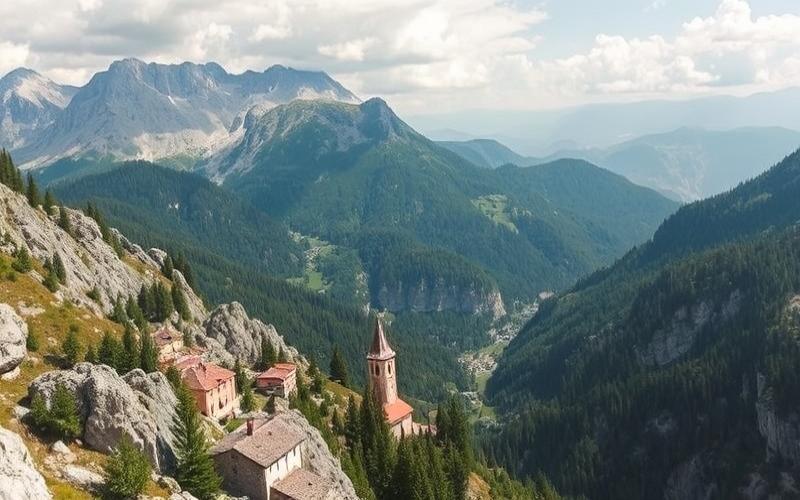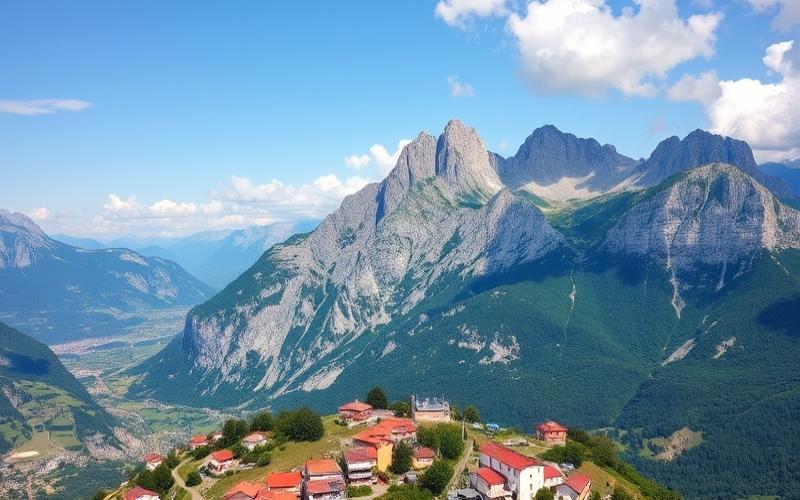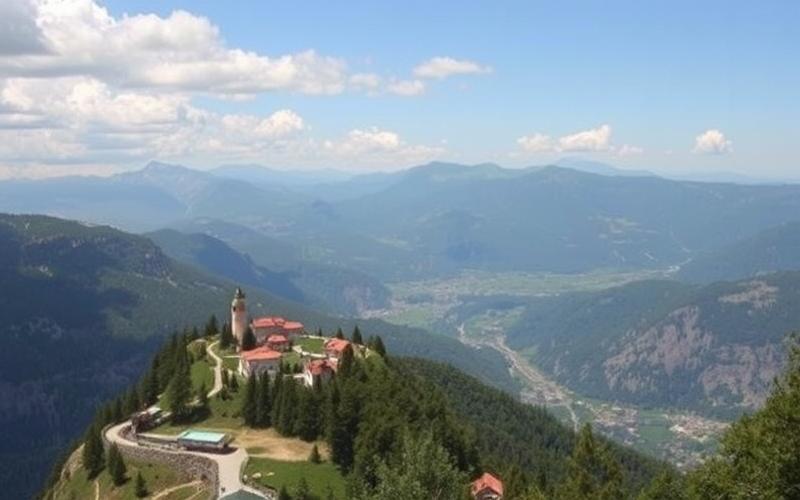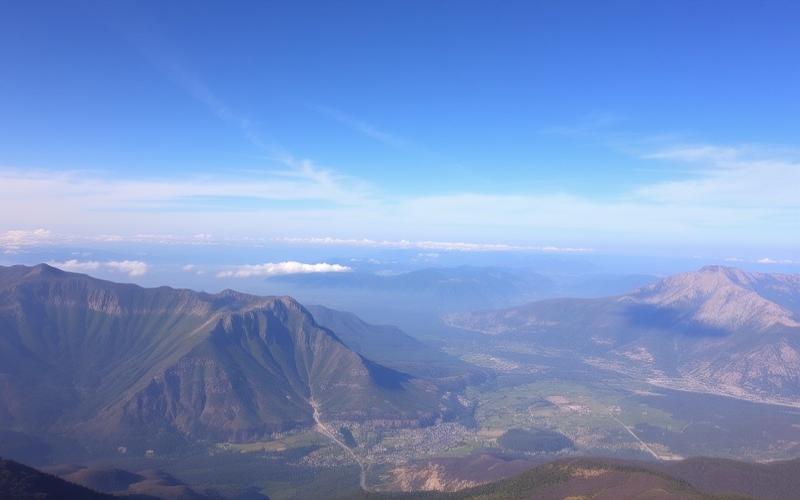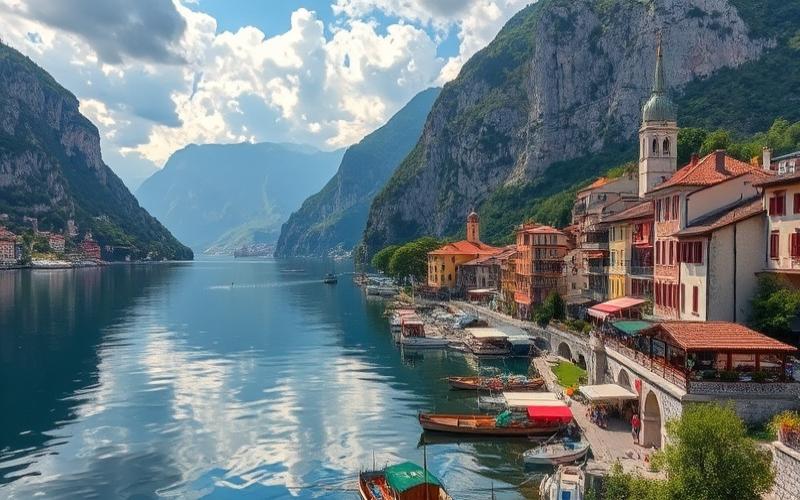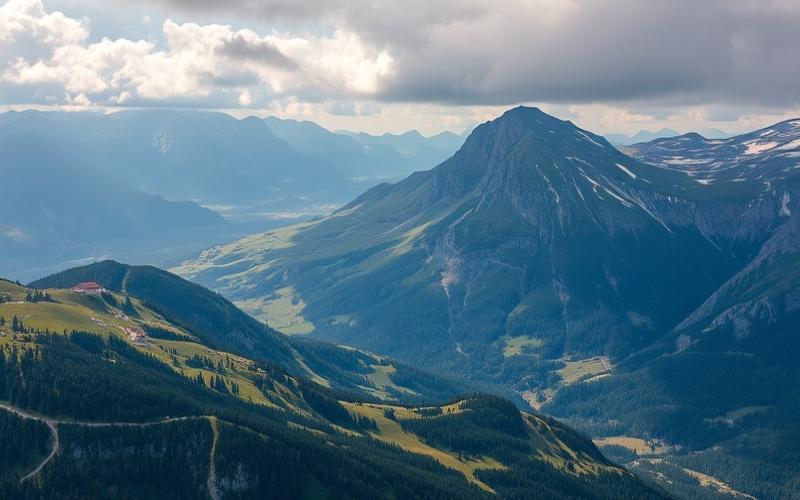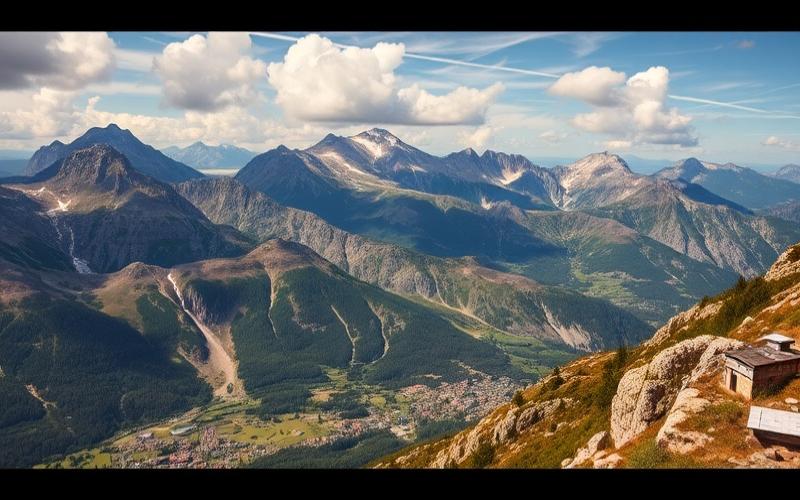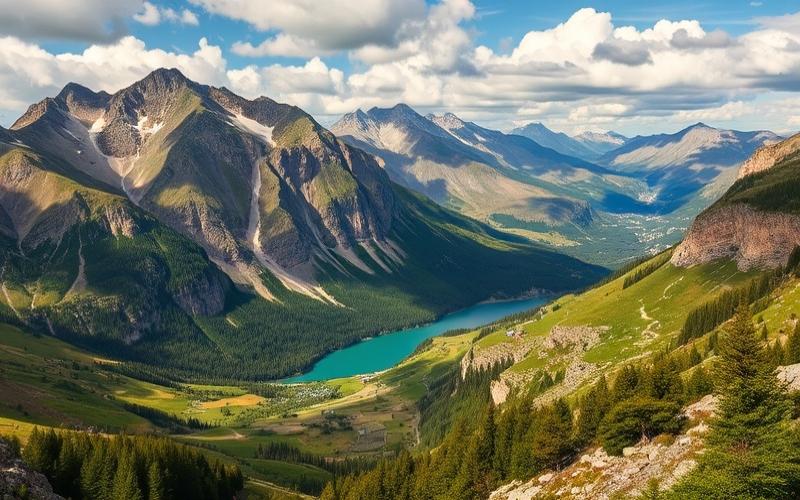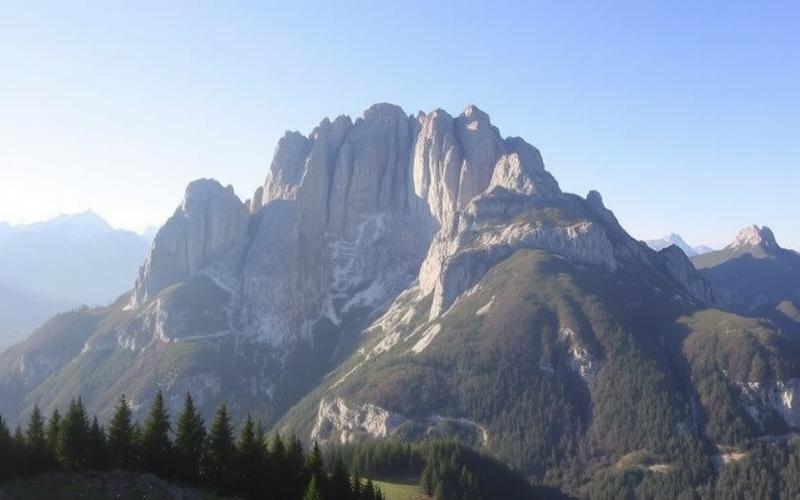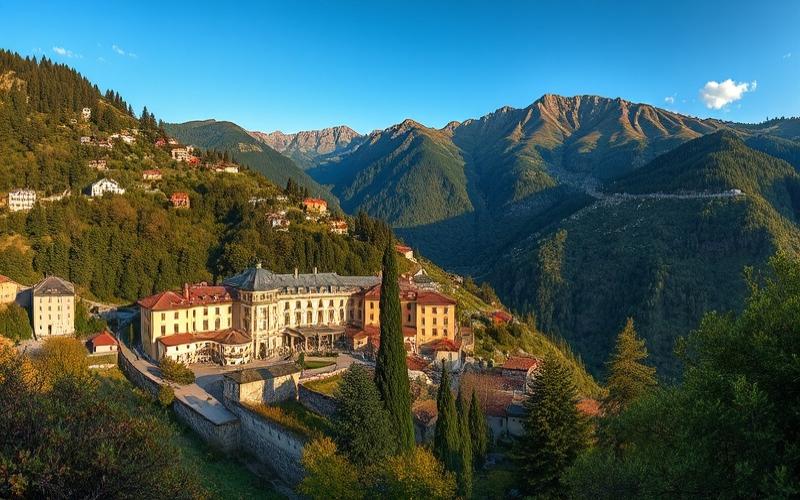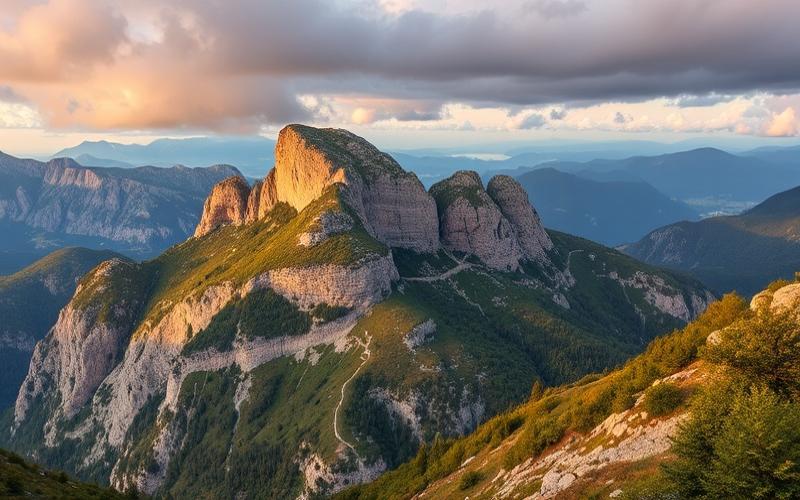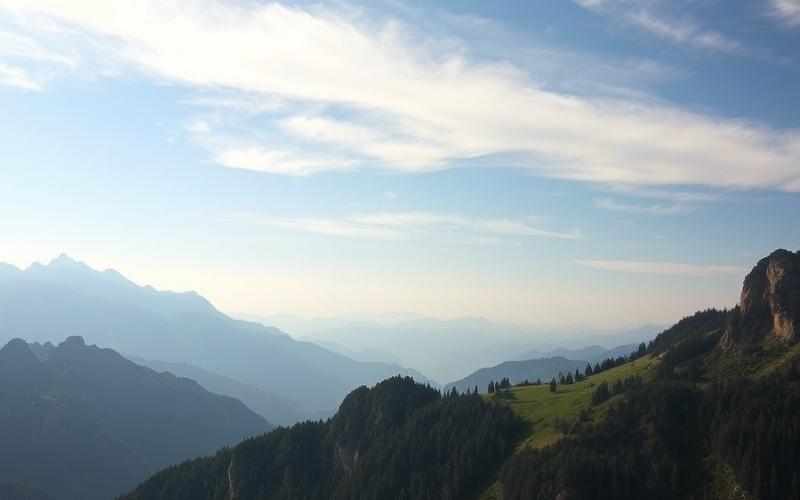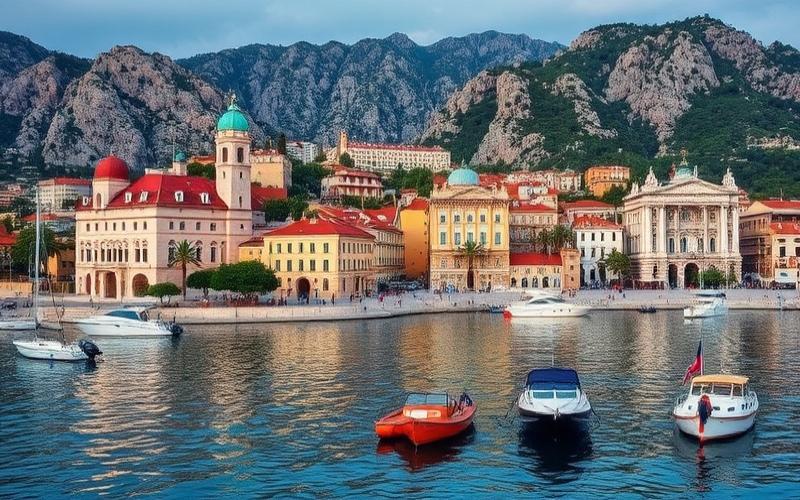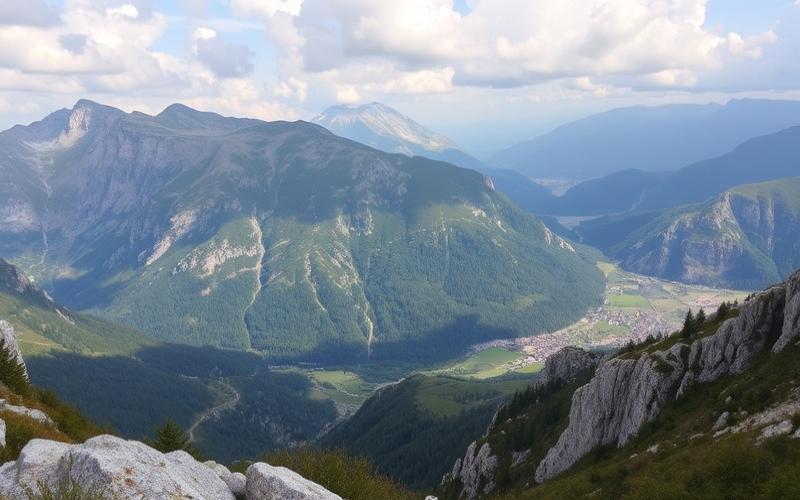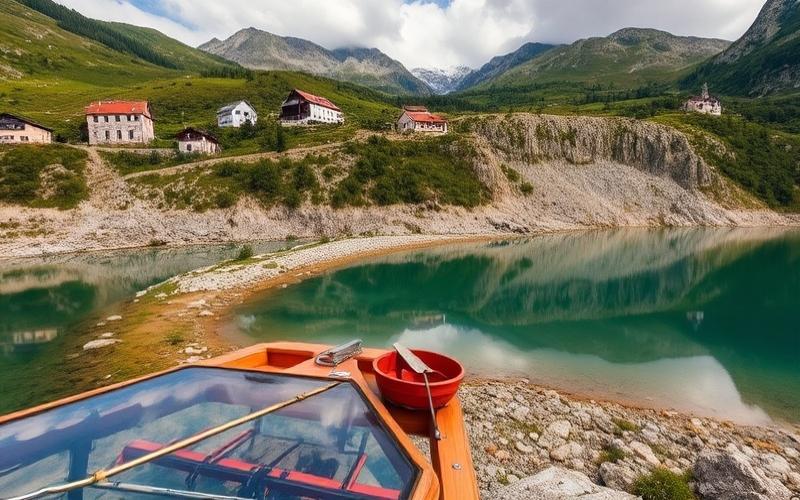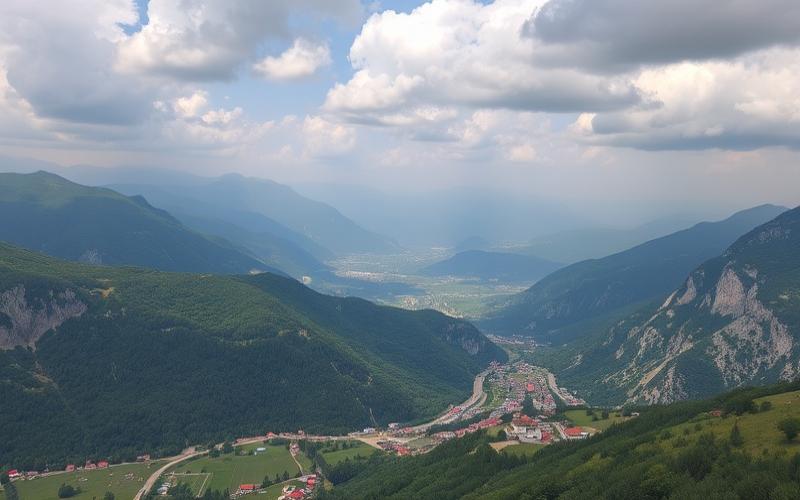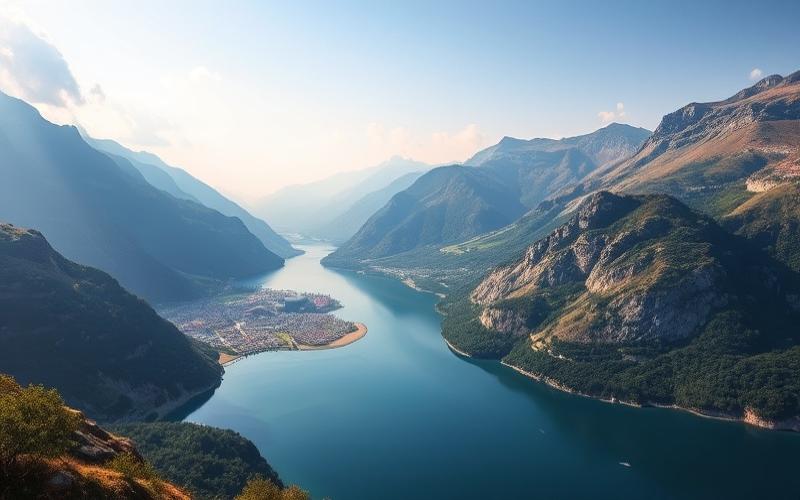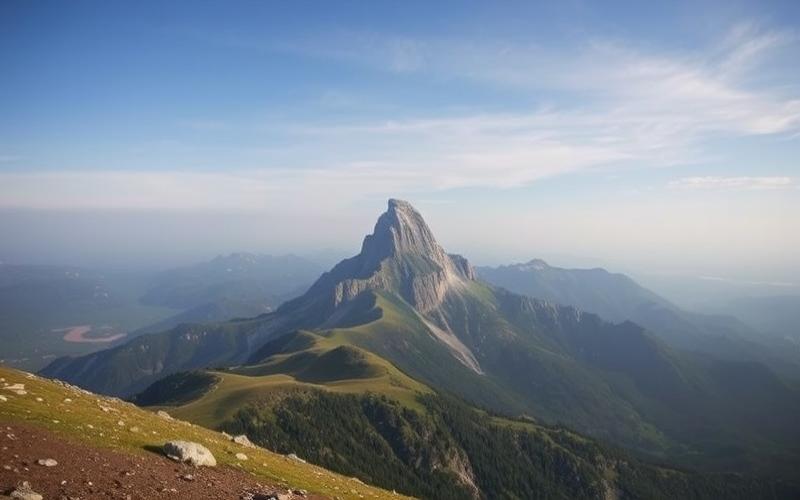
 Published on and written by Cyril Jarnias
Published on and written by Cyril Jarnias
Acquiring a Hotel in Montenegro
Montenegro, an emerging gem of the Balkan Europe, is a destination attracting increasingly savvy investors seeking international diversification. This country offers not only picturesque coastal landscapes and a rich cultural history but also a booming real estate market.
Good to Know:
Before embarking on this promising entrepreneurial venture, it is essential to have a comprehensive checklist to successfully navigate through Montenegro’s complex real estate purchase procedures.
Each step, from understanding local laws to property evaluation, can prove crucial for the success of your hotel investment.
Overview of Montenegro’s Hotel Market
The hotel industry in Montenegro is experiencing remarkable growth dynamics, supported by the rising number of tourists and evolving traveler expectations. The country stands out as an emerging Mediterranean destination, with a market adapting to diversified demand and investing heavily in its infrastructure.
Current Hotel Market Trends
- Planned increase in four and five-star hotel beds to reach an additional 5,500 by 2025.
- Strong demand for upscale accommodations (star-rated hotels, serviced residences), luxury eco-complexes, and innovative properties meeting the requirements of a sophisticated international clientele.
- Growth of hybrid concepts blending traditional lodging, personalized experiences, and integration of leisure infrastructure (marinas, spas).
| Accommodation Type | Current Demand | Expected Evolution |
|---|---|---|
| 4 & 5 Star Hotels | Very Strong | Continued Rise |
| Sea View Villas | Strong | Stability |
| Hotel Residences | Rapidly Increasing | Marked Growth |
| Eco-Complexes | Growing | Accelerated Development |
Most Attractive Regions for Hotel Investment
- Adriatic Coast: Budva, Kotor, Tivat – flagship destinations benefiting from strong international tourist appeal.
- Porto Montenegro and Lustica Bay: major hubs combining prestigious hotels, luxury marinas, and exclusive residences.
- Kolasin: developing mountain region thanks to all-season tourism projects like the Kolasin Valleys ski resort.
Impact of Tourist Seasons
The market is characterized by strong seasonality:
- Summer season (June-September): very high occupancy rates on the coast; maximum influx in beach resorts.
- Winter: growing dynamism due to the development of winter tourism around resorts like Kolasin.
This seasonality, however, generates certain logistical challenges:
- Road congestion during high season
- Limited airport capacity during summer peaks
- Pressure on water supply in certain regions
Recent Investments & Major Projects
Public/private investments aim to strengthen tourism attractiveness:
- Ongoing airport modernization (notably Tivat)
- Creation/expansion of international marinas
- Launch or extension of integrated resorts (example: Lustica Bay)
- Implementation of the national strategic plan focused on service/infrastructure quality
Potential Challenges for the Hotel Sector
- Increased competition among upscale establishments as well as with private rentals like Airbnb
- Sometimes undersized infrastructure facing rapid growth
- Local regulations that can complicate certain real estate/hotel investments
- Essential sustainable management facing environmental pressures linked to tourist influx
Opportunities for New Investors
- Diversification into all-season tourism (mountain/ski beyond summer)
- Eco-friendly concepts meeting new client expectations
- Technological deployment: digitalization of customer journey/smart hotel
- Synergies with major international groups or hotel brands
Good to Know:
The hotel market in Montenegro is currently booming, with a growing diversity of accommodation types, from luxury hotels to hostels. Occupancy rates are mostly high during the summer high season, influenced by beach tourism on the Adriatic coast, while mountain regions experience a moderate peak in winter. The areas around Budva and Kotor remain the most attractive for investments, thanks to their visibility and tourist influx. Recent infrastructure projects, such as road improvements and the development of Tivat airport, enhance the country’s appeal. However, investors must navigate between strict local regulations and increasing competition. Opportunities focus on eco-tourism and the development of innovative hotel facilities, capitalizing on Montenegro’s growing reputation as an affordable luxury destination within the Balkans.
In this economic context driven primarily by the tertiary/tourism sector, Montenegrin hospitality thus presents significant potential while requiring vigilance regarding structural challenges linked to rapid development.
Key Steps to Acquire a Hotel in Montenegro
1. Conduct a Comprehensive Market Study
- Identify regions with high tourism potential: the Adriatic Coast (Budva, Kotor, Tivat) attracts high-end international clientele, while inland areas like Kolašin develop mountain and nature offerings.
- Analyze visitor profiles (origin, seasonality, expectations) and competition: nearly 65% of existing hotels are rated 4 or 5 stars, with a growing supply of premium accommodations.
- Use local resources such as the Tourism Office or hire a specialized firm to map trends and purchasing behaviors.
2. Evaluate Existing Opportunities
- Compile a list of hotels for sale through specialized real estate agencies or local professional networks.
- Take into account:
- Location (proximity to beaches/tourist sites)
- Size/capacity
- Overall condition of the building and facilities
- Reputation in the local/international market
3. Analyze Legal and Bureaucratic Aspects
- Inquire about the real estate acquisition procedure for foreigners: in Montenegro, it is possible for a non-resident to purchase a hotel property through a local entity.
- Obtain all necessary permits from municipal authorities (commercial operation, renovation, etc.).
- Verify compliance with local standards regarding fire safety, accessibility, and environment.
4. Organize Financing
List of common options:
| Option | Advantages | Points to Consider |
|---|---|---|
| Local Bank Loan | Potentially competitive rates | Requires strong guarantees |
| Private Investors | Quick capital injection | Possible shared control |
| Partnerships | Risk/resource sharing | Clearly define profit distribution |
5. Conduct Thorough Due Diligence
Examples of essential checks:
- Complete analysis of past financial statements
- Review of all current supplier/subcontractor contracts
- Search for potential legal disputes or hidden debts
- Detailed technical inspection of the building
6. Plan Renovations/Improvements
Practical advice:
- Prioritize room/suite renovation according to international standards expected by the target clientele.
- Optimize common areas (modern digital reception, wellness spaces).
- Invest in energy efficiency (effective insulation/heating/air conditioning).
7. Develop an Effective Marketing Strategy
Recommended actions:
- Create a multilingual SEO-optimized website focused on unique Montenegrin experiences.
- Leverage major OTAs while working on visibility with specialized tour operators in Central Europe/Balkans.
- Establish partnerships with local/regional tourist offices.
8. Train and Build a Competent Management Team
Recommendation list:
- Recruit staff with international hospitality experience if possible; also bet on local talents trained at the recognized National Hotel Training Center in Budva.
- Implement a continuous internal training program focused on customer service & sustainable management.
To succeed in a hotel project in Montenegro, it is necessary to combine a fine understanding of the local tourism context with the systematic adoption of international best practices in each key phase—from the initial study to building a high-performing team ready to meet the demanding expectations of a diverse clientele.
Step-by-Step Summary in Table Form:
| Step | Specific Action |
|---|---|
| Market Study | Analyze regions/preferences/competition |
| Opportunity Evaluation | Identify properties/condition/location |
| Legal Analysis | Purchase procedure/permits/standards |
| Financing Organization | Choice between loan/investor/partner |
| Due Diligence | Financial/legal/technical audit |
| Renovation Planning | Targeted modernization/service |
| Marketing Strategy | Multilingual web/OTA channels/partnerships |
| Team Building | Recruitment/training/local/international |
Good to Know:
The Montenegrin hotel sector remains very competitive but still offers excellent value for money compared to other Mediterranean markets; standing out through innovation in customer service remains key to consistently attracting demanding international tourists throughout the year.
Good to Know:
When acquiring a hotel in Montenegro, it is crucial to start with a detailed market study to assess tourism potential in areas like Budva or Kotor, where demand can fluctuate by season. Secondly, evaluating and selecting a hotel available for purchase involves considering its strategic location, size, and the state of its infrastructure, with coastal areas often having the highest expansion potential. Legally, navigating through complex acquisition procedures requires in-depth knowledge of local permits and regulations, which may necessitate the help of a lawyer specialized in Montenegrin real estate. Financially, explore funding solutions such as bank loans, particularly those offered by local banks like CKB. Conducting exhaustive due diligence involves meticulously scrutinizing financial statements, current contracts, and identifying any potential liabilities. Planning renovations can enhance the hotel’s appeal, especially with modern designs that attract international tourists. A targeted marketing strategy could include promotion through platforms like Booking.com to maximize online visibility. Finally, forming a competent management team that understands the local fabric and visitor expectations is essential to ensure quality service and the establishment’s success.
Due Diligence: Ensuring the Viability of Hotel Investment
Due diligence constitutes a crucial step in the process of acquiring a hotel in Montenegro. This thorough evaluation helps identify potential risks and guarantees the investment’s viability before finalizing the transaction.
Legal and Administrative Verification
- Clarification of ownership history to prevent potential inheritance disputes
- Verification of property boundaries and location
- Inspection of premises and infrastructure
- Confirmation that the property is legally clean and free of any encumbrances
It is essential to verify that the hotel possesses all necessary licenses and permits to operate its business (restaurant, alcohol, beach rentals, and other related areas). In some cases, obtaining missing permits can take significant time and money.
Financial and Economic Analysis
| Aspect | Elements to Analyze |
|---|---|
| Operational Costs | Utility and maintenance fees |
| Profitability | Historical accounting records |
| Projections | Anticipated revenues and return on investment |
| Financing Strategy | Bank loan options and initial investment |
Technical and Infrastructural Assessment
- Evaluation of the property’s current condition
- Determination of renovation or modernization needs
- Estimation of costs to bring up to standards
- Detailed inspection of equipment and installations
An investment requiring significant renovation expenses demands serious consideration.
Market and Competition Analysis
Evaluating the investment environment and region is paramount. It is necessary to understand the level of competition in the selected area, including what services competitors offer and at what price level, to develop an effective management strategy.
Engaging Local Experts
To ensure comprehensive due diligence, it is recommended to enlist:
- An experienced law firm in Montenegro
- Business formation consultants
- Local real estate experts
These professionals can:
- Verify the good intentions and honesty of the contracting parties
- Negotiate and draft the contract
- Help obtain any necessary authorizations
- Conduct title searches and checks in the land registry
- Obtain a cadastral extract to validate the property’s legitimacy
The due diligence approach should be holistic, intelligent, and forward-looking. By following a step-by-step process, you can not only successfully acquire a hotel in Montenegro but also lay solid foundations for its continued success and maximize the investment’s profitability and sustainability.
Good to Know:
When acquiring a hotel in Montenegro, rigorous due diligence is crucial to validate the investment’s viability. Start by verifying property titles and necessary licenses to ensure everything complies with local legal requirements. Analyze accounting records to assess the establishment’s current and projected profitability. Meticulously evaluate the hotel’s infrastructure and equipment, considering the state of facilities and their maintenance. Examine the local tourism market to identify trends and future demand. Engage local consultants and specialized lawyers who will assist in this complex analysis, protecting you from potential pitfalls and providing valuable information to secure your investment.
Tourism Statistics and Trends in Montenegro
Tourism in Montenegro shows positive dynamics with 2.5 million visitors recorded in the first ten months of 2024, representing 99.4% of the previous year’s figure. August 2023 marked a historic record with 240,754 tourist arrivals, demonstrating a strong recovery post-pandemic.
The tourism sector is a major economic pillar, contributing 30% to the national GDP. The hotel infrastructure includes approximately 500 establishments offering 50,000 beds, 65% of which are rated 4 or 5 stars, reflecting a positioning oriented towards quality tourism.
Source Markets and Trends
| Country | Share of Arrivals | Observations |
| Russia | 10.1% | Leading source market |
| Germany | 6.2% | Second source market |
| France | 3.9% | Sixth source market |
The French market shows remarkable growth with 96,000 tourists in 2023, a 27% increase compared to the previous year. French tourists are distinguished by longer stays, ranking third for length of stay among all nationalities.
Tourism Growth Factors
- Improvement of transport infrastructure (airport expansion, road network)
- Intensive promotional campaigns on international markets
- Visa exemption policy for many countries (with changes planned for 2025 for Russia and Belarus)
- Attractive natural and cultural heritage
Developing Tourism Segments
Montenegro is diversifying its tourism offerings to attract different visitor profiles:
- Luxury tourism
- Active and adventure tourism
- Cultural tourism
- Authentic gastronomic experiences
- Eco-tourism valuing preserved landscapes
French tourists, in particular, seek authentic experiences, guiding the development of specific tourism products. The 27% progression of the French market in 2023 confirms the country’s growing attractiveness for this clientele.
Investment in the hotel sector appears promising given positive attendance trends and the country’s strategic positioning as an emerging Mediterranean destination, offering good value for money and diverse experiences.
Good to Know:
In 2023, Montenegro welcomed approximately 2 million tourists, mainly concentrated on the Adriatic Coast and the northern mountains. Attendance remains seasonal with a summer peak, although eco-tourism and cultural tourism are experiencing notable growth, thus attracting an audience seeking alternative experiences beyond beaches. Tourists come mostly from Russia, Serbia, and the European Union, but an emergence of Asian markets gradually investing in the sector is observed. The Montenegrin government is intensifying efforts to promote the destination internationally, notably through the development of eco-friendly infrastructure and targeted marketing campaigns. For hotel investors, these trends offer an opportunity to diversify offerings and target not only summer months but also off-seasons with thematic stay programs, thereby strengthening long-term profitability.
Disclaimer: The information provided on this website is for informational purposes only and does not constitute financial, legal, or professional advice. We encourage you to consult qualified experts before making any investment, real estate, or expatriation decisions. Although we strive to maintain up-to-date and accurate information, we do not guarantee the completeness, accuracy, or timeliness of the proposed content. As investment and expatriation involve risks, we disclaim any liability for potential losses or damages arising from the use of this site. Your use of this site confirms your acceptance of these terms and your understanding of the associated risks.

